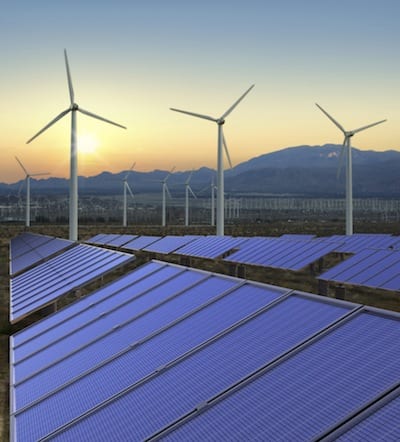“The average Australian thermal coal project is now delayed by an additional 1.3 years relative to projects in competitor countries (3.1 years compared with 1.8 years internationally). Each year, the average delay increases by a further 3-4 months,” the statement says.
The question of timing of coal mines is considered crucial by both project developers and environmentalists. Developers know that time is running out for the development of large coal mines because they sense that the tide is turning in the market. Environmentalists sense this too and know that delay is their most powerful weapon before billions of infrastructure are committed.
Abbott’s concern about coal mine approvals contrasts with the Coalition’s policy on renewable energy, where it has created enormous uncertainty and delay because of its insistence that the 20 per cent Renewable Energy target be reviewed yet again in 2014. That review will now occur because Labor chose not to put a proposal to push the review out to 2016, as recommended by the Climate Change Authority, to parliament.
Developers and financiers say few large scale projects are being approved while utilities retain the hope that their obligations under the large scale renewable energy target will be diluted. Financial parties will also not come to the party while that uncertainty remains and power purchase agreements are not written.
The Coalition has also vowed to scrap the Clean Energy Finance Corporation and has flagged new noise monitoring rules for wind farms and yet more inquiries into health impacts.
Abbott’s push for fast-tracking fossil projects came as a group of prominent Australians signed an open letter to the head of Australia’s big four banks calling on them to divest in fossil fuel projects to ensure global warming is not pushed past safe levels. Signatories to the letter included authors Peter Carey, Kate Grenville and J.M. Coetzee, musicians Mark Seymour and Paul Dempsey, ethicist Peter Singer, and Australian climate commissioner Professor Lesley Hughes.
The group asks the banks to place an immediate prohibition on loans for new fossil fuel projects and associated infrastructure, and for them to sell down stakes in coal and gas companies.
Abbott’s position, though, is consistent with that of the Republican Party in the US, which has responded to Barack Obama’s climate policies by calling for accelerated drilling programs that Climate Progress described as “Big Oil’s Christmas list”.
The Republicans have also taken moves to combat the spread of renewables, proposing amendments to legislation that will
reduce funding by nearly $US1 billion.
Rudd, meanwhile, announced on Monday the appointment of Mark Butler as the new Minister for Environment and Climate Change, a reshaping of the portfolio away from combining climate change with industry, as many favour, or with energy, as even more prefer.
The Coalition had proposed a similar paring of climate and environment.
Butler said the anticipated policy change on the carbon price – set to be discussed by Cabinet on Monday afternoon – would have ”significant budget implications” but expressed confidence that Labor could win back public support for carbon pricing.
Meanwhile, Butler was quoted this morning as saying that moving more rapidly to a market price for carbon – which will effectively bring the Australian price down to European prices, where efforts to strengthen climate policy and the carbon price have been thwarted by coal-reliant Poland, would have an impact on the budget but would also be complex.
It will also require a change to legislation.However, it will also have an impact on the electricity market. Black coal generators, which have found it difficult to compete because brown coal generators received compensation while they didn’t, may enjoy a reprieve – probably at the expense of gas.
The move to a market-based carbon price will also reduce the retail price of electricity by around 7 per cent, IPART
predicted last week.However, it will also cause the price of renewable energy certificates to rise to offset the reduction in the carbon price.
The Greens, meanwhile, have called this morning for a more ambitious renewable energy target and increased funding for the Clean Energy Finance Corporation. It wants a 90 per cent renewables target by 2030 to give investors and electricity network regulators long-term policy certainty.
The Greens also want the $10 billion set aside for the CEFC over five years to be trebled to $30 billion over 10 years, to drive the commercialisation of new technology and help the country catch up with other nations.
The policy measures were released as part of a new clean energy roadmap.
“Landmark research by the Australian Energy Market Operator, as well as independent academics, has clearly shown that a clean energy Australia is possible,” the document says.
“We can power Australia with the wind, sun, and water for a cost similar to replacing the ageing coal and gas plants that are nearing the end of their lives now. Renewables are getting cheaper while gas and coal plants will face increasing carbon pollution costs.”










